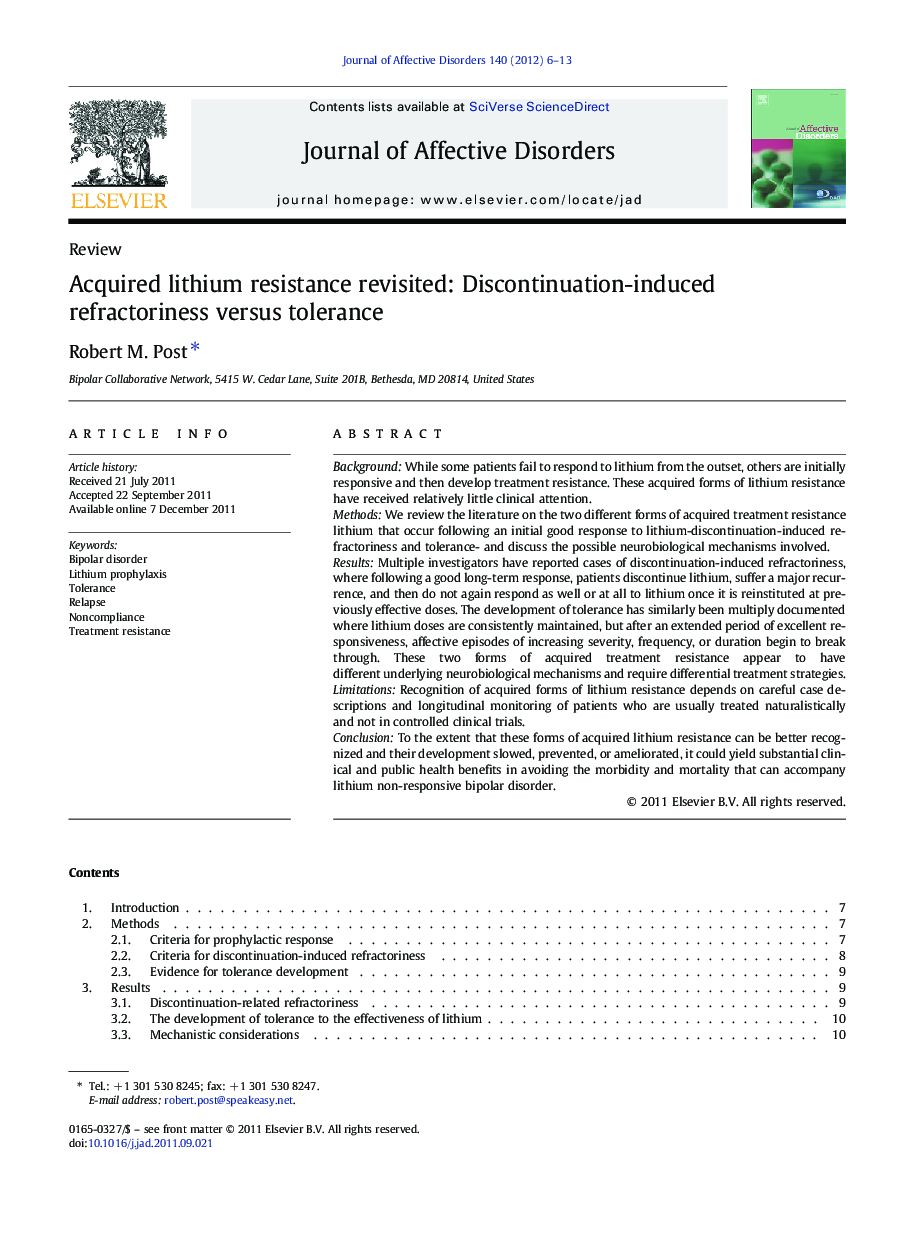| Article ID | Journal | Published Year | Pages | File Type |
|---|---|---|---|---|
| 6235051 | Journal of Affective Disorders | 2012 | 8 Pages |
BackgroundWhile some patients fail to respond to lithium from the outset, others are initially responsive and then develop treatment resistance. These acquired forms of lithium resistance have received relatively little clinical attention.MethodsWe review the literature on the two different forms of acquired treatment resistance lithium that occur following an initial good response to lithium-discontinuation-induced refractoriness and tolerance- and discuss the possible neurobiological mechanisms involved.ResultsMultiple investigators have reported cases of discontinuation-induced refractoriness, where following a good long-term response, patients discontinue lithium, suffer a major recurrence, and then do not again respond as well or at all to lithium once it is reinstituted at previously effective doses. The development of tolerance has similarly been multiply documented where lithium doses are consistently maintained, but after an extended period of excellent responsiveness, affective episodes of increasing severity, frequency, or duration begin to break through. These two forms of acquired treatment resistance appear to have different underlying neurobiological mechanisms and require differential treatment strategies.LimitationsRecognition of acquired forms of lithium resistance depends on careful case descriptions and longitudinal monitoring of patients who are usually treated naturalistically and not in controlled clinical trials.ConclusionTo the extent that these forms of acquired lithium resistance can be better recognized and their development slowed, prevented, or ameliorated, it could yield substantial clinical and public health benefits in avoiding the morbidity and mortality that can accompany lithium non-responsive bipolar disorder.
